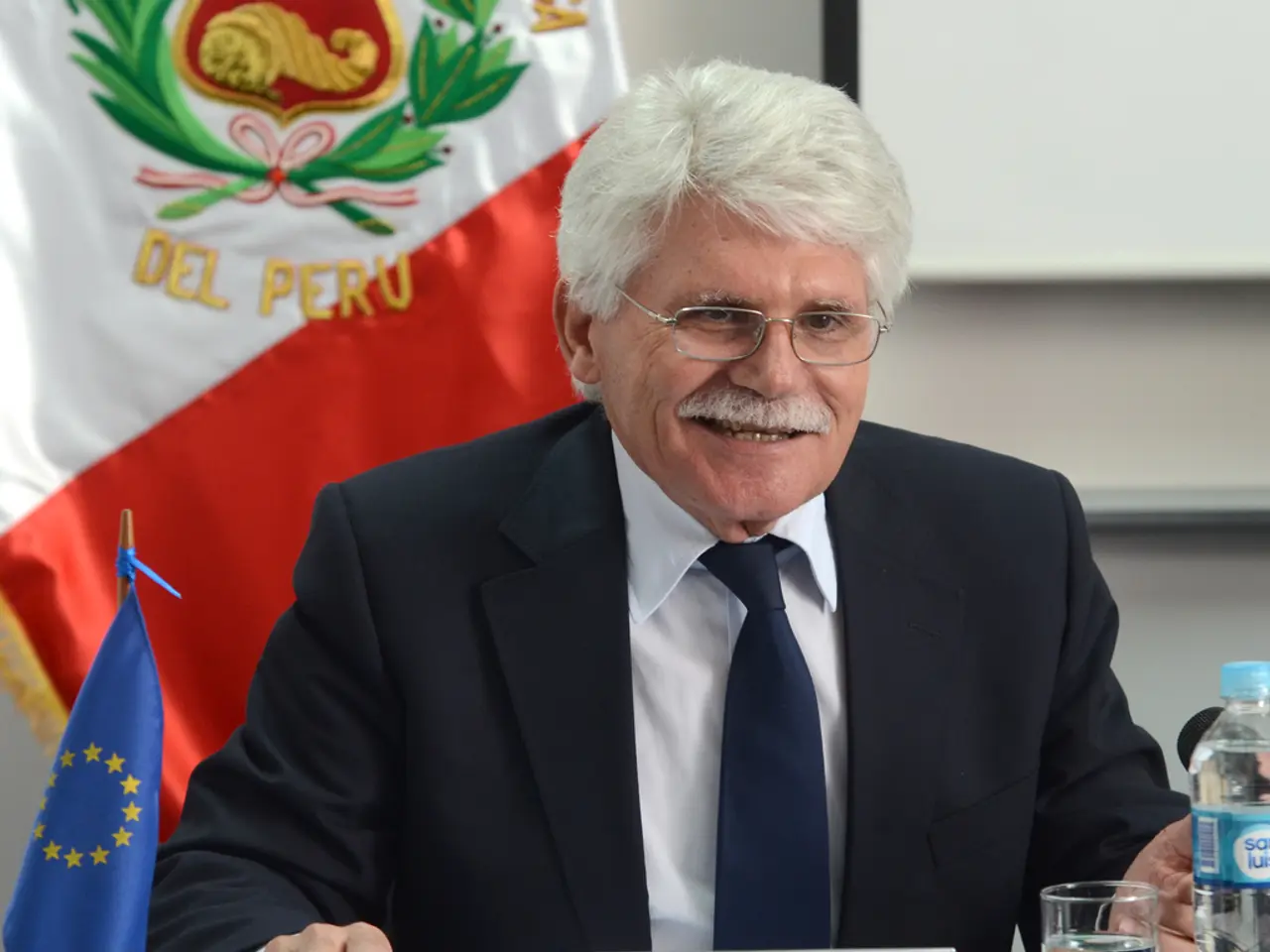Bolivia heads to the polls, potentially marking an end to socialist rule.
In a historic turn of events, the Movement Towards Socialism (MAS) party, which has governed Bolivia for two decades, is facing a potential decline after the 2025 presidential election. The election, held in August, ended in a runoff between Rodrigo Paz, a centrist candidate advocating for market-friendly policies, and Jorge Quiroga, a right-wing former president, with MAS candidates failing to secure enough votes to proceed to the second round.
The electoral setback has left MAS "stunned"[2], as they had championed statism and indigenous rights through socialism. The unexpected rise of Paz signals a popular desire for economic renewal away from socialism towards more market-oriented and inclusive capitalism[1].
The impact of this shift is significant. The loss of dominance weakens MAS's policymaking power, potentially leading to a shift in economic policies towards liberal reforms. MAS’s base, closely tied to indigenous and working-class groups, may face reduced representation, which could affect social programs associated with socialist governance.
However, the outcome of the October runoff between Paz and Quiroga will further define Bolivia's future direction. If Paz wins, it could consolidate a break from socialist policies towards centrist capitalism; if Quiroga wins, a more right-wing approach might ensue. Either way, the era of socialism under MAS appears to be at a crossroads or in decline[1][2].
Everyday, Bolivians are experiencing severe economic hardships, including long lines at gas stations, increasing food prices, and shortages of medicines and medical products. As a result, former voters of the MAS party, once mobilized against entrepreneurs and capitalist interests, are now turning to the more business-friendly opposition[3].
The upcoming elections and potential political shift may not guarantee a peaceful transition. Violent street demonstrations occurred in the past due to allegations of election fraud[4]. The structural problems of the Bolivian economy could lead to restlessness if there are no quick successes after the elections[5].
The opposition's proposed more liberal economic system with market-based principles and investment incentives is now seen as the last hope for a way out of the crisis by many[6]. Dr. Christina Stolte, the head of the Konrad-Adenauer-Stiftung's Bolivia office in La Paz, emphasizes the need for a stable and inclusive transition[7].
For the first time in the history of the Plurinational State of Bolivia, the MAS is on the brink of having to hand over power[8]. The next Bolivian government will face a challenging task, with the hope for an economic turnaround and quick recovery after a change in government being optimistic[9].
References:
[1] BBC News. (2022, August 10). Bolivia election: Centrist Rodrigo Paz leads polls amid MAS collapse. Retrieved from https://www.bbc.com/news/world-latin-america-62529328
[2] The Economist. (2022, August 19). The end of the MAS era in Bolivia. Retrieved from https://www.economist.com/the-americas/2022/08/19/the-end-of-the-mas-era-in-bolivia
[3] The Guardian. (2022, August 15). Bolivia's MAS party crumbles under economic and political pressure. Retrieved from https://www.theguardian.com/world/2022/aug/15/bolivias-mas-party-crumbles-under-economic-and-political-pressure
[4] Al Jazeera. (2019, October 20). Bolivia protests: Evo Morales resigns after disputed election. Retrieved from https://www.aljazeera.com/news/2019/10/20/bolivia-protests-evo-morales-resigns-after-disputed-election
[5] The Economist. (2022, August 19). The end of the MAS era in Bolivia. Retrieved from https://www.economist.com/the-americas/2022/08/19/the-end-of-the-mas-era-in-bolivia
[6] The Guardian. (2022, August 15). Bolivia's MAS party crumbles under economic and political pressure. Retrieved from https://www.theguardian.com/world/2022/aug/15/bolivias-mas-party-crumbles-under-economic-and-political-pressure
[7] Deutsche Welle. (2022, August 11). Bolivia: Will the MAS party keep its grip on power? Retrieved from https://www.dw.com/en/bolivia-will-the-mas-party-keep-its-grip-on-power/a-61461007
[8] The Economist. (2022, August 19). The end of the MAS era in Bolivia. Retrieved from https://www.economist.com/the-americas/2022/08/19/the-end-of-the-mas-era-in-bolivia
[9] The Guardian. (2022, August 15). Bolivia's MAS party crumbles under economic and political pressure. Retrieved from https://www.theguardian.com/world/2022/aug/15/bolivias-mas-party-crumbles-under-economic-and-political-pressure
- The community may witness a significant change in economic policies through vocational training programs and policies as the potential transition away from socialism moves towards a more market-oriented approach.
- Amidst political discussions on the upcoming elections, the general-news media coverage has highlighted the importance of stable and inclusive transition, emphasizing the need for vocational training programs to equip the workforce for the new economic system.








